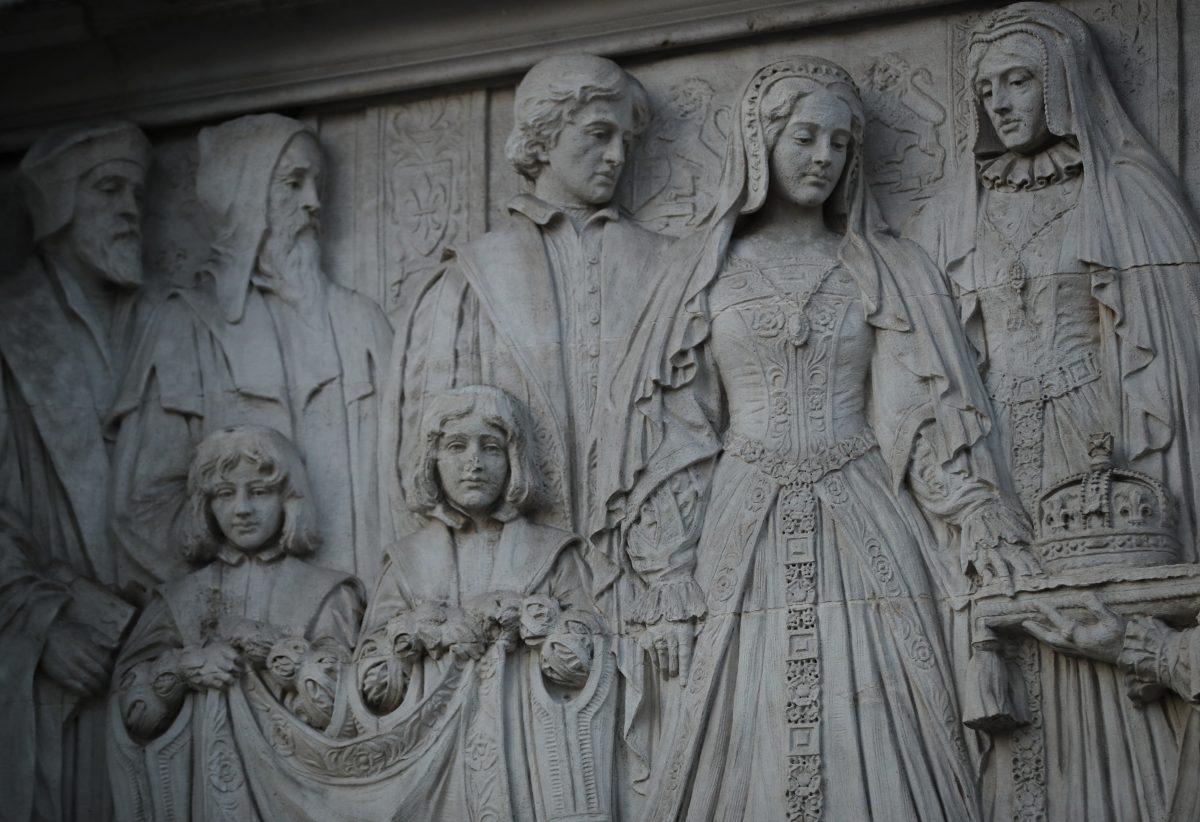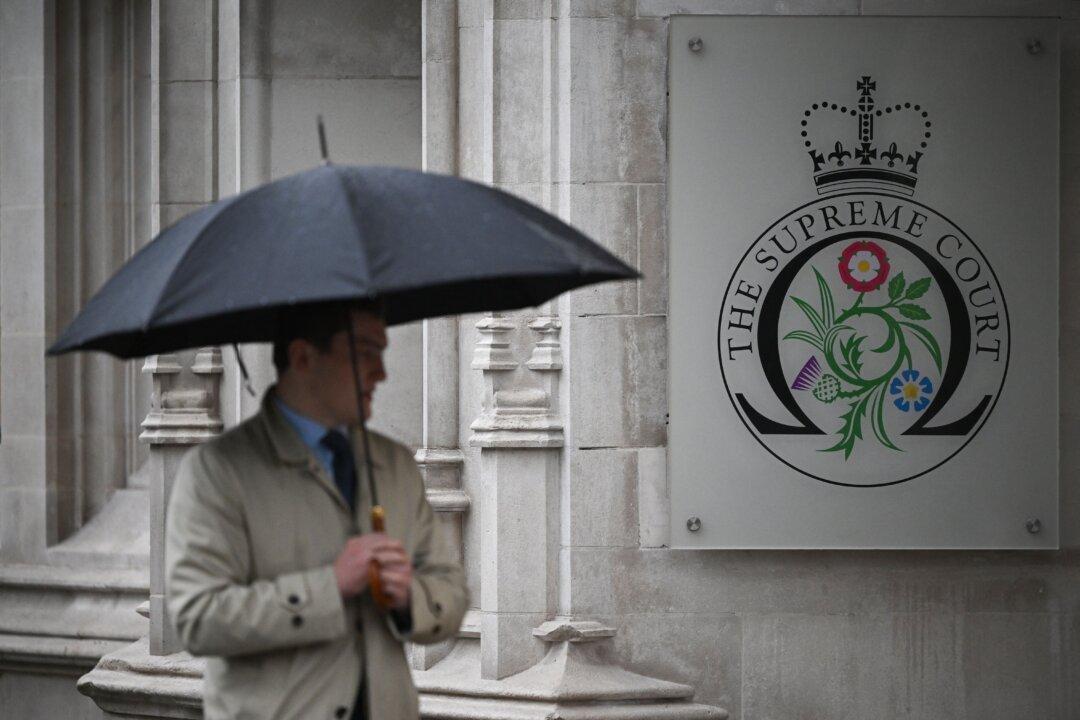A landmark legal case over whether trans-identified men with a gender recognition certificate should be treated as women in Scotland under the 2010 Equality Act has been heard at the Supreme Court in London.
The legal challenge was brought by the campaign group For Women Scotland (FWS) over the definition of “woman” in Scottish legislation, which mandates 50 percent female representation on public boards.
The latest action by the women’s rights group seeks to overturn a decision by the Scottish courts in 2023 which found that treating a trans-identified man with a gender recognition certificate (GRC) as a woman under the UK-wide Equality Act was lawful.
‘Fantasy’ of ‘Legal Fiction’
Acting for FWS, Aidan O’Neill, KC argued that biological reality must take precedence over the “legal fiction” of a piece of paper.He told the court on Tuesday: “Our submission is that the court should find in favour of [FWS] … that in the Equality Act, sex just means sex, as that word and the words woman and man are understood and used in ordinary, everyday language, used every day in everyday situations by ordinary people.”
He said the SNP ministers’ position that sex, man, and woman in the Equality Act refer to “certificated sex”—as the sex on a person’s birth certificate whether or not amended by a GRC—is “just wrong and should be rejected by the court.”
‘Sex Is Immutable’
He added: “Our position is your sex, whether you are a man or a woman or a girl or a boy, is determined from conception in utero, even before one’s birth, by one’s body.“It is an expression of one’s bodily reality. It is an immutable biological state.”
O’Neill said that FWS’s position is “not transphobic” and would be “preserving” rights rather than “closing down” rights.
He argued: “It’s simple and straightforward if you just stick to men being men, women being women, and sex being sex.”
O'Neill said that other interpretations mean “natal men gaining women’s rights via GRC and the other one involves natal women losing women’s rights as a result of GRC.”
He told the court that Parliament could not have intended for the application of the Equality Act to result in “absurd or nonsensical outcomes,” which he argued that the Scottish ministers’ application of the law was leading to.

Only a ‘Small Number’
Ruth Crawford, KC, acting for the Scottish Government, argued that anyone with a GRC is “recognised in law” as having changed sex and is therefore entitled to the “protection” afforded to their acquired gender.“We submit there are only two sexes or genders, and a person whose sex becomes that of a man or woman in consequence of a GRC belongs to that sex, and will have the protection afforded under the Equality Act,” she said.
She added the reverse also applies, and a woman who obtains a GRC legally changing their gender to male would lose those same protections, explaining it would be “strange” for someone to retain them after meeting the “onerous conditions” required to receive the document.
These include, the court heard, living with gender dysphoria for two years, and “an intention to continue living in the acquired gender until death.”
Crawford told the court that by granting a change in legal status, a GRC has “far-reaching consequences” and is more than “just some legal fiction” or of “symbolic value.”
She added a GRC is “no more a legal fiction than adoption,“ and said that an adopted person is treated in law as the child of their adopter ”and no-one else.”
Crawford told the court that since the Gender Recognition Act was passed in 2004, 8,464 people in the UK had obtained a GRC, which she said was an average of 420 people each year.
Legal Back and Forth
The Gender Representation on Public Boards (Scotland) Act 2018 is a piece of legislation intended to increase the proportion of women on public boards north of the border.In 2022, FWS successfully challenged the original act over its inclusion of men with GRCs in its definition of women.
The Court of Session in Edinburgh ruled that changing the definition of a woman in the act was unlawful, as it dealt with matters falling outside the Scottish Parliament’s legal competence.
Following the challenge, the Scottish Government dropped the definition from the act and issued revised statutory guidance on how to comply with the law.
This stated that under the 2018 Act the definition of a woman was the same as that set out in the Equality Act 2010, and also that a man with a GRC recognising their gender as female had the sex of a woman.
FWS challenged this revised guidance on the grounds that sex under the Equality Act referred to its biological meaning and said the SNP government was overstepping its powers by effectively redefining the meaning of “woman.”
However, their challenge was rejected by the Court of Session’s Outer House in December 2022.
‘An Assault on Reality’
The LGB Alliance was allowed to intervene in the case on behalf of lesbians, many of whom have said they feel threatened by trans-identified men claiming to be lesbians and demanding access to spaces for same-sex attracted women.The charity said in a statement: “No one is sexually attracted to a certificate. It should be clear that the sexual orientation of lesbians—and indeed of anyone else—is about physical characteristics and not paperwork. The definition of sexual orientation in the Equality Act 2010 hinges on the definition of sex in that Act.”
The LGB Alliance added: “People born male who self-define as women, and as lesbians – whether or not they possess a GRC – are heterosexual men. Pretending otherwise is an assault on reality and reason that hurts all women but especially lesbians.
“We believe that those men who insist on accessing lesbian services and spaces, despite the hurt and alarm they cause, are coercive, abusive and potentially dangerous.
“Applying for a GRC involves completing an online form and costs £5. If the Supreme Court decides that this process can make any man a lesbian, it will represent official state sanction for the aberrant desires of the worst men. It will also be used to justify the punishment of women who object.”
“It will determine whether a pregnant woman with a GRC is entitled to maternity leave, what it means to be same-sex attracted, and whether a man with a GRC’s entitlement to join a group of lesbians takes priority over their right to freely associate with only women.
“Trans rights are protected under the separate category of gender reassignment but to fully guarantee women’s rights it is increasingly clear that a consistent, biological and factual understanding of sex is the only workable solution.”
The Scottish Government said it was unable to comment on live legal proceedings.
The appeal before Lord Reed, Lord Hodge, Lord Lloyd-Jones, Lady Rose, and Lady Simler was expected to last two days, with a judgment to be handed down at a later date.







